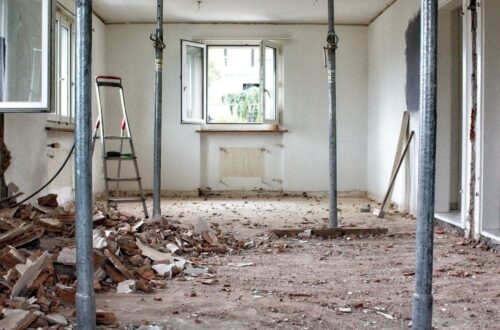
How to Ensure Your Home Improvements Meet Legal Requirements
There are many legal requirements you must adhere to when carrying out home improvements, so it is important to understand what they are.
When embarking on home improvements, it’s crucial to ensure that your endeavours comply with legal requirements and building regulations. By adhering to these standards, you protect your investment and ensure the safety and integrity of your home.
To bring you up to speed, we will guide you through the necessary steps to guarantee that your home improvements meet legal requirements. If you’re looking for expert guidance or legal advice on boundary disputes, it is important to obtain professional advice.
What Home Improvements Need Building Regulation Approval?
To understand the importance of building regulations, it’s essential to explore the types of home improvements that typically require approval. These may include loft conversions, house extensions, structural alterations, electrical installations, and plumbing modifications.
Each improvement has specific regulations to ensure compliance with safety, energy efficiency, and structural standards. For detailed information and examples, you can refer to authoritative websites like the National Homebuilding & Renovating Show.
How You Can Make Sure Home Improvements Meet Regulations
To ensure your home improvements meet legal requirements and building regulations, consider the following steps:
Check Local Authority Requirements
Start by consulting your local authority or planning department to understand the specific regulations and approvals needed for your planned home improvements. Local government websites, such as the official website of your city or county, provide valuable information regarding building regulations and permits.
Verify Property Boundaries
Before commencing any construction work, ensure that you have a clear understanding of your property boundaries. Accurate knowledge of boundaries is crucial, especially for extensions or modifications that might affect neighbouring properties. The Royal Institution of Chartered Surveyors (RICS) offers guidance on property boundaries and can be a helpful resource.
Obtain Planning Permission
Some home improvements, such as significant extensions or modifications to listed buildings, require planning permission in addition to building regulation approval. The Planning Portal, an official government website, provides comprehensive information on the planning permission process and relevant regulations.

Seek Professional Advice When Drawing Up Plans
It’s highly recommended to consult professionals, such as architects, structural engineers, or building surveyors, when creating plans for your home improvements. These experts can ensure that your designs comply with building regulations, offer guidance on structural integrity, and help you create a safe and functional space.
The Royal Institute of British Architects (RIBA) is a reputable organisation that can assist you in finding qualified professionals for your project.
The Importance of Compliance with Electrical and Plumbing Regulations
When undertaking home improvements, it’s crucial to pay special attention to electrical and plumbing systems to ensure compliance with regulations. Faulty electrical work or improper plumbing installations can pose serious safety hazards and may not meet legal requirements.
To ensure compliance, it’s advisable to hire qualified electricians and plumbers who are registered with competent schemes such as NICEIC (National Inspection Council for Electrical Installation Contracting) and CIPHE (Chartered Institute of Plumbing and Heating Engineering).
These professionals possess the knowledge and expertise to carry out installations and modifications in accordance with regulations. By adhering to electrical and plumbing standards, you not only comply with the law but also safeguard the well-being of your household.
The Role of Energy Efficiency in Meeting Legal Requirements
In today’s environmentally conscious world, energy efficiency plays a vital role in home improvements. Meeting legal requirements often includes complying with energy efficiency standards to minimise environmental impact and reduce energy consumption.
Consider incorporating sustainable features such as double-glazed windows, insulation, energy-efficient heating systems, and renewable energy sources like solar panels. These improvements not only align with legal requirements but also offer long-term cost savings by reducing energy bills.
Additionally, adhering to energy efficiency regulations can enhance the value and marketability of your property. To ensure your home improvements meet energy efficiency standards, consult resources such as the Energy Saving Trust, a trusted organisation that provides guidance on sustainable practices and energy-efficient technologies.

Ensuring your home improvements meet legal requirements
In conclusion, ensuring that your home improvements meet legal requirements is essential for a successful and compliant project. By understanding building regulations, obtaining necessary approvals, and seeking professional advice, you can confidently pursue your home improvement goals. Remember to consult solicitors in St Albans to ensure you navigate the legal aspects of your project effectively.
Please be advised that this article is for general informational purposes only, and should not be used as a substitute for advice from a trained legal professional. Be sure to consult a lawyer/solicitor if you’re seeking advice on boundary disputes and planning permissions. We are not liable for risks or issues associated with using or acting upon the information on this site.




